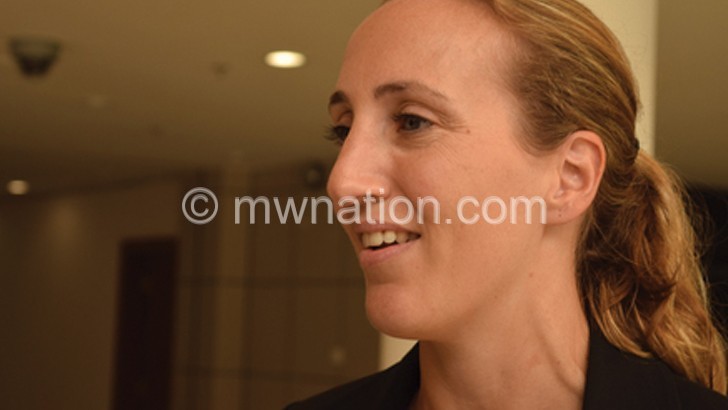Britain speaks on future aid to Malawi
British High Commissioner Holly Tett says United Kingdom (UK) is yet to decide on the future of Department for International Development (DfID), allaying fears of potential loss of aid to Malawi and other developing countries.
The diplomat was responding to a questionnaire from The Nation sent last week on the future of British aid to Malawi following reports of a possible merger of DfID and Foreign and Commonwealth Office (FCO) as reported in the British media.

Tett said yesterday that Britain is still committed to spending a fraction of its national wealth towards development of countries such as Malawi.
She said: “It was announced last month, in the Queen’s Speech, that the UK would conduct a security, defence and foreign policy review to reassess its place in the world. DfID will be part of this review.
“No decision has been announced about the future of DfID and whatever you might be hearing is speculation.”
British media has reported that Prime Minister Boris Johnson wants the UK’s $14.5 billion annual aid budget—a cake which Malawi is among the partakers—to come under the foreign secretary and be spent more in line with the country’s “national interest”.
UK overseas aid funding is pegged at 0.7 percent of gross domestic product (GDP) each year, with United Nations (UN) encouraging donor countries to contribute 0.7 percent of their GDP on foreign aid.
According to the British media reports, civil servants from DfID and FCO had been asked by the UK Cabinet Office to draw plans for a potential merger between the two departments, raising fears of a potential loss of DfID aid to Malawi of which 44 percent goes to the health sector.
Other key sectors that directly benefit from DfID aid include education (14 percent), government and civil society organisations (11 percent), disaster and relief (8 percent) and agriculture (7.8 percent).
But in her response, Tett reaffirmed that the UK is fully committed to spending 0.7 percent of GDP on aid in the most efficient way.
She said that last year alone, the UK provided £84 million (about K84 billion) in bilateral aid to Malawi.
Said Tett: “Our partnership has seen us working together to tackle some of the most complex challenges and move people from poverty. The UK is helping create a better future for Malawians. For example, UK aid in Malawi has created better jobs or livelihoods for over 120 000 people, supported over 35 000 girls to attend secondary school since 2011 and provided 289 solar-powered medical storage units to help build a stronger health system.
“We are also leading global action to help provide 12 years of quality education for all girls by 2030.”
According to the diplomat, the UK is also taking a zero-tolerance approach to fraud and corruption and does not provide aid directly to the government of Malawi.
Reacting to Tett’s sentiments, Economics Association of Malawi (Ecama) acting executive director Kettie Nyasulu yesterday cautioned Malawi against continued overdependence on aid.
She said: “With overdependence on aid, you are not sure whether the donor will support or not. In addition, there is also loss of political and economic sovereignty as the country becomes at the mercy of the priorities of the donor.
“It [aid dependence] also creates a culture of laziness as a nation since there is always an expectation of some aid to support needs and wants.”
Nyasulu also stressed that empirical research shows that sustainable development for a country should be driven by domestic resources and not aid.
Last week, a coalition of major aid groups warned Prime Minister Johnston that the expected merger of DfID with FCO would give the impression the UK is “turning our backs on the world’s poorest people”. In a joint statement seen by The Nation, more than 100 charities including ActionAid, Oxfam, War On Want, World Jewish Relief and Islamic Relief UK said: “Merging DfID with the FCO would risk dismantling the UK’s leadership on international development and humanitarian aid.”





